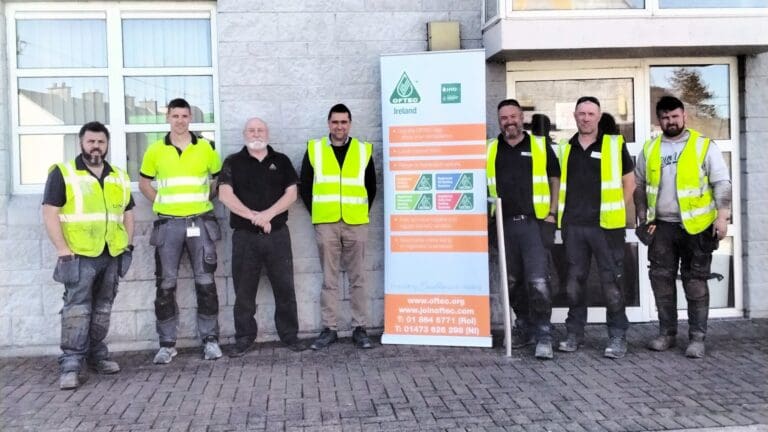
The meeting was to discuss whether we could offer a simpler solution to decarbonisation of the Council HQ rather than a major retrofit programme. The answer of course, was yes, we could convert the oil-fired boiler that heats the main office building to Hydrotreated Vegetable Oil (HVO), a biofuel offering an immediate c.87% reduction in carbon equivalent emissions.
A straightforward solution
In principle, the solution was straightforward, but we had a few steps to get here, and the conversion only went live in May 2023. Sean McBride, the ROI local inspector carried out the initial site survey and then, through the Council’s tendering process (all OFTEC registered businesses), Brendan Earley, Premier Energy Storage, was engaged to replace the tank and carry out the necessary works to convert the existing boiler to run on a biofuel. The boiler, which is now running on HVO, will see a reduction in its emissions by 87% – paving the way to achieving heating emissions savings in a timely and affordable fashion.
Samantha Healey from Longford County Council was interviewed for RTÉ News and said: “Before we could even look at putting in a heat pump system for example, we would need to make some significant deep retrofits to the fabric of the building. HVO presented an excellent opportunity to bridge that gap.”
The Council will be monitoring the emissions reductions achieved by the fuel switch and it’s anticipated that the project will demonstrate the scale of carbon reductions that can be achieved in both commercial and residential settings in a way that is quicker, cheaper, and more universally applicable than retrofitting.
A move towards biofuels
Speaking about Longford County Council’s aspirations for the project, executive engineer David McNiff said: “We’re very pleased for Longford County Council to play such a strong role in the move towards the use of biofuels. The process itself was seamless and, by utilising existing equipment, this move has saved the Council money, reduced our capital outlay and given us an immediate 87% reduction in carbon emissions. Looking towards the future, we plan to invest in more adaptations and add further controls to achieve additional savings.”
OFTEC and TAZCH will be using the project to demonstrate how the switch to low-carbon liquid fuels can accelerate Ireland’s journey towards hitting its emissions reduction targets by 2030. The Government’s Climate Action Plan commits Ireland to a legally binding target of achieving net-zero greenhouse gas emissions by 2050 and achieving a reduction of 51% by 2030.
